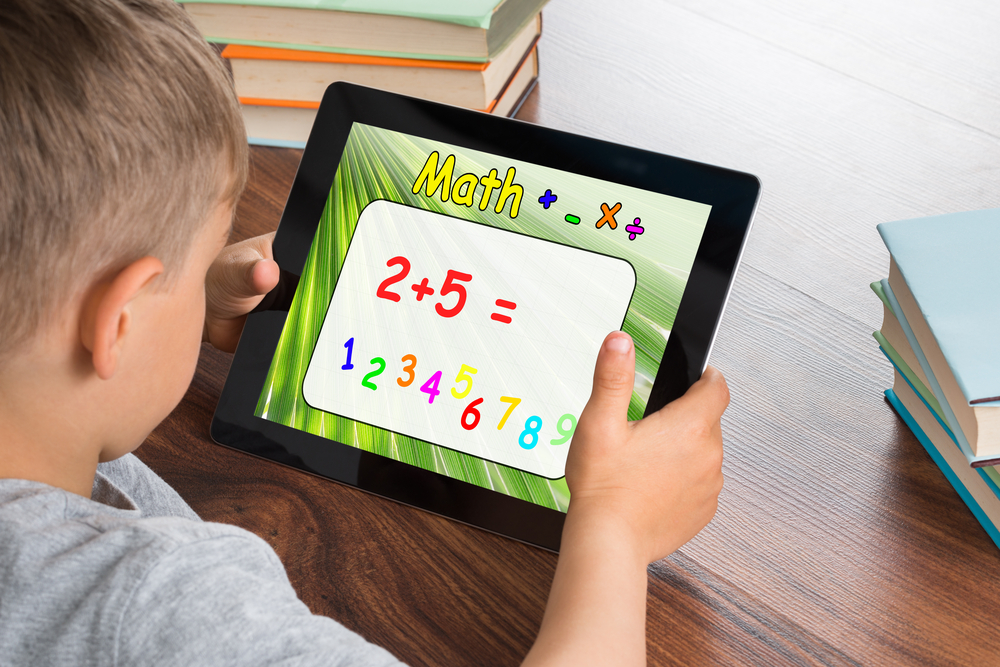Comprehension skills Reading Comprehension Worksheets for Ages 3-4
4 filtered results
-
From - To
Enhance your child's reading journey with our engaging comprehension skills worksheets, designed specifically for ages 3-4! These interactive resources aim to foster early literacy and critical thinking through fun and engaging activities. Tailored to captivate young learners, our worksheets introduce fundamental concepts like story recall, character identification, and basic inference. As children embark on their reading adventures, they’ll develop essential comprehension skills that lay the foundation for future learning. With colorful illustrations and age-appropriate tasks, our worksheets make reading comprehension enjoyable and accessible. Perfect for at-home learning or classroom use, these valuable tools support your child's growth and literacy development!
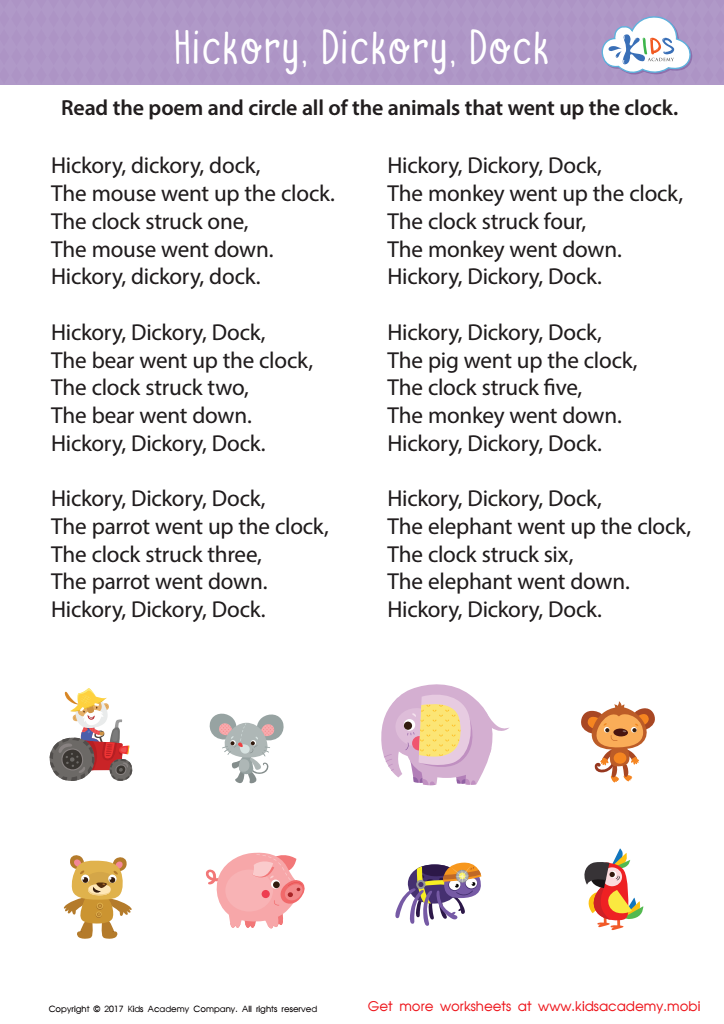

Hickory Dickory Dock Sequencing Worksheet
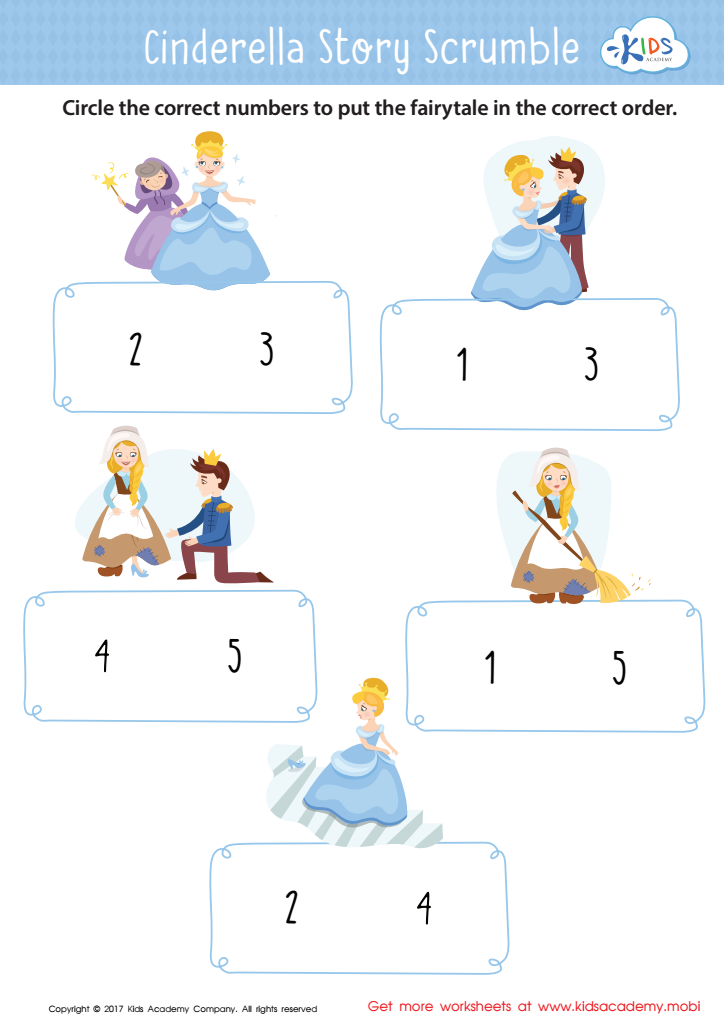

Cinderella Story Sequencing Worksheet
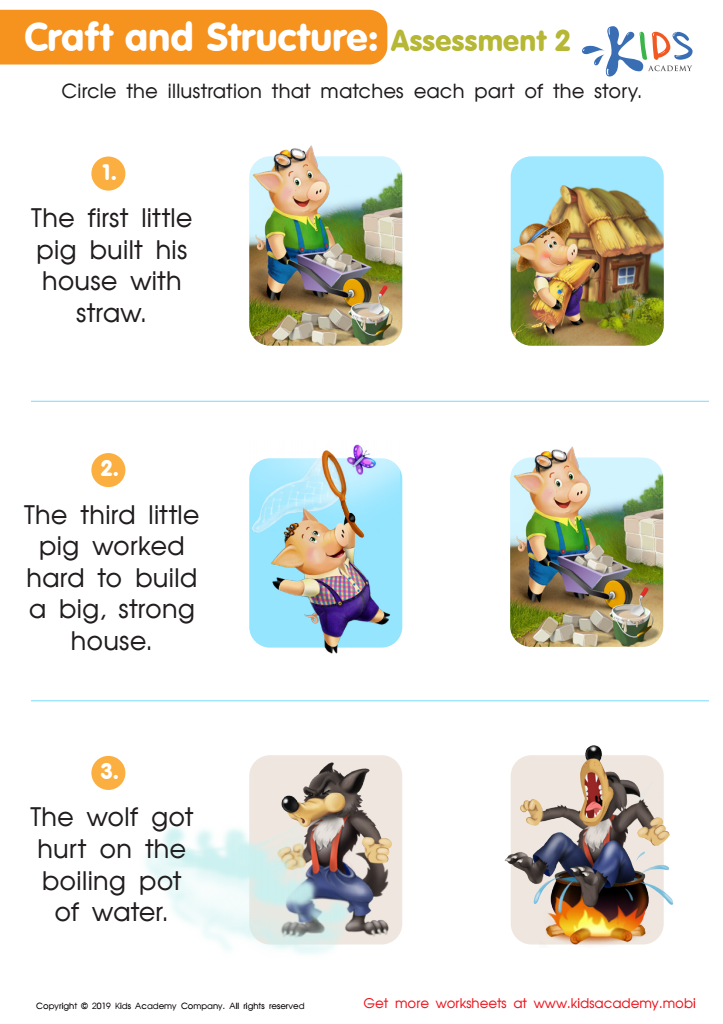

Craft and Structure: Assessment 2 Worksheet 2
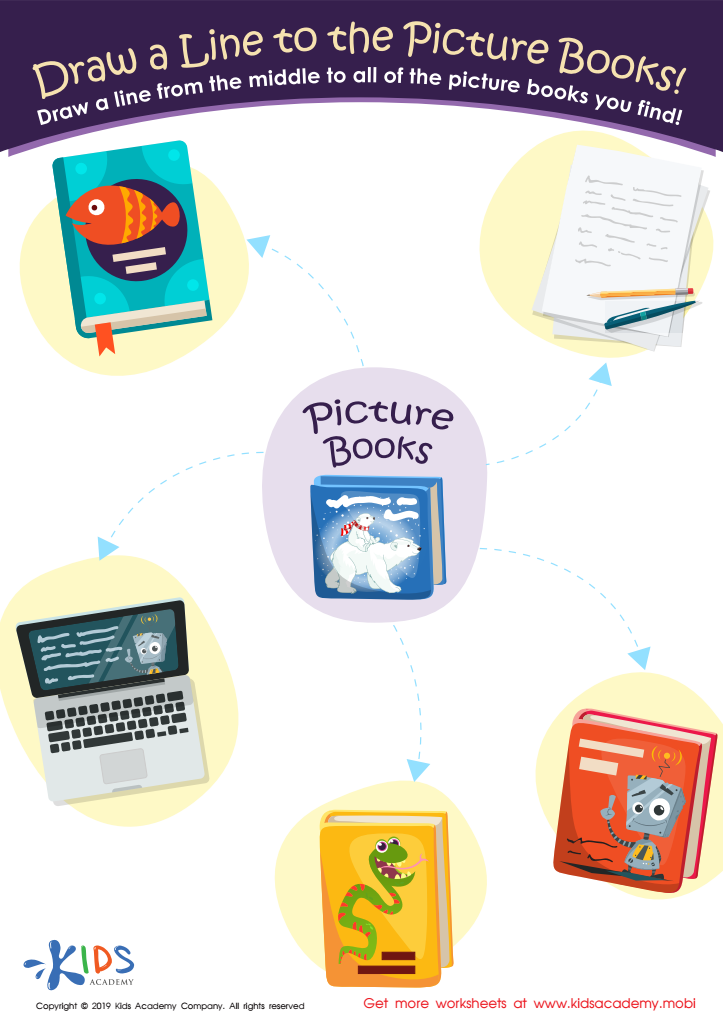

Draw a Line to the Picture Books Worksheet
Reading comprehension skills are essential for children aged 3-4, laying the foundation for future learning and academic success. During this critical developmental period, children start to understand and interpret language, making it imperative for parents and teachers to foster these skills.
Firstly, early comprehension skills enhance vocabulary development. When children engage with stories and discussions, they encounter new words in context, expanding their linguistic abilities. This increased vocabulary contributes to better communication skills later on.
Secondly, comprehension helps develop critical thinking and reasoning abilities. As young children begin to make predictions about stories, answer questions, and connect narratives to their experiences, they learn to analyze information and draw conclusions—key components of cognitive development.
Furthermore, promoting reading comprehension fosters a love for books and learning. Engaging children in interactive storytelling and asking open-ended questions encourages curiosity and interest in reading, setting the stage for lifelong reading habits.
Lastly, strong reading comprehension skills correlate with academic readiness. Children who can understand and relate to stories in these early years are more likely to excel in literacy as they enter formal schooling. Therefore, nurturing comprehension skills during this stage is vital for parents and teachers who aim to support their children's language growth and educational journey.
 Assign to My Students
Assign to My Students



